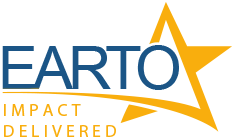08 / 03 / 2022
EARTO Analysis of Horizon Europe Pre-Draft AGA – Financial Aspects
EARTO members very much appreciate the efforts of the European Institutions to preserve continuity in the Framework Programmes’ (FPs) implementation as much as possible within the new Model Grant Agreement’s (MGA) and Annotated Grant Agreement’s (AGA) Corporate Approach. EARTO remains fully committed to actively contribute to preparing Horizon Europe’s implementation. Even though not legally binding, the AGA is an essential document supporting beneficiaries’ sound understanding and proper application of the rules set in the MGA. EARTO has already contributed to the MGA and AGA making with detailed analysis of the different draft MGA and AGA versions, and with technical papers on key topics (see EARTO papers on Personnel Costs, Internal Invoices, Open Science & IPR, among others).
Based on its members’ expertise, EARTO hereby made a new analysis of the European Commission’s (EC) Pre-draft AGA 0.2 proposal (version from November 2021). First and foremost, EARTO would like to thank the EC services for taking EARTO earlier comments into consideration when preparing this new AGA version. This new AGA version will certainly help beneficiaries to understand the new rules for participation of Horizon Europe. Accordingly, EARTO very much welcomes that:
- the beneficiaries usual cost accounting practices (UCAP) are acknowledged throughout the AGA, especially for the calculation of personnel costs and internally invoiced goods and services,
- the new AGA allows for application of different personnel cost rates per organisation (average personnel cost case 2 in AGA article 6.2.1.4).
In addition, EARTO would like to point out two main areas that could be further simplified to support proper application by beneficiaries avoiding adding possibilities of calculations’ errors:
- Area 1: Re-insert the option of one single rate per person per year next to one rate per person per reporting period. Many beneficiaries like RTOs have different people working on different project ensuring synergies between projects. For such beneficiaries the calculation of a rate per person per reporting period would drastically increase the number of calculated rates and possibly bringing the error rate up and also going against the ambition of simplification. Therefore, we recommend reinstating the option to calculate the personnel cost rate based on a full calendar year to be used in all projects. If a financial year is not closed it should be possible to use a daily rate based on the last closed financial year (AGA article 6.2.1.4 case 1).
- Area 2: Simplify the calculation of the time factor by allowing beneficiaries to use % instead of deducting days from the fixed denominator of 215 days, especially for absences like parental leave, in the same way as it is still defined for part-time employees (AGA article 6.2.1.4).
EARTO experts would also like to point out that new challenges will arise in future implementation of EU RD&I related programmes. Indeed, while EARTO very much appreciated the further investments made in RD&I related topics in the new MFF (for which EARTO supported the EU Institutions in the last budgetary negotiations), the multiplication of independent EU RD&I funding programmes having each a different set of rules of participation will bring challenges to both the EU institutions, member states as well as beneficiaries (i.e. Horizon Europe, Defence, Space, Health, Digital & Regional programmes). This will bring a new level of complexity for beneficiaries to manage the participation in each of these funds. We expect this will be a key challenge the European institutions, member states and the beneficiaries will have to face together. Accordingly, EARTO and its experts remain ready to further share their experiences with the EU institutions in order to find common solutions to the upcoming implementation’s challenges.
Read the full EARTO Analysis of Horizon Europe Pre-Draft AGA – Financial Aspects

